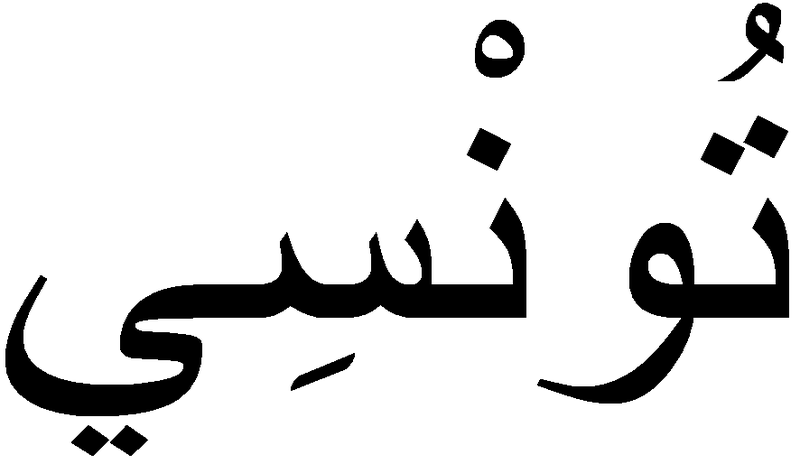
Tunisian Arabic, often called Derja (الدارجة), is the colloquial Arabic spoken by the majority of Tunisians in daily life. Unlike Modern Standard Arabic, which is taught in schools and used in formal media, Derja is informal, dynamic, and heavily influenced by Tunisia’s diverse history.
Pronunciation:
Tunisian Arabic sounds quite different from other Arabic dialects. For example, the letter ق (qaf) is often pronounced as a g sound, unlike the glottal stop used in Egyptian Arabic or the hard “q” in MSA.
Vocabulary:
Tunisian Arabic incorporates many words borrowed from Berber, French, Italian, Turkish, and Spanish due to Tunisia’s rich history of trade and colonization.
Grammar and Syntax:
Derja simplifies many of the grammatical rules of MSA. For example, verb conjugations and sentence structures are often shortened or altered to suit casual conversation.
Phonetic Shifts:
Some sounds in Tunisian Arabic shift compared to MSA, such as ج pronounced as ʒ (like the "s" in "measure").
Though Tunisian Arabic is widely understood, there are regional variations across the country:
Tunis (Capital) Dialect:
Considered the “standard” for Tunisian Arabic, heavily influenced by French loanwords and the cosmopolitan nature of the capital.
Sfax Dialect:
Known for being faster and more guttural, with unique vocabulary not used elsewhere.
Sousse and Sahel Region Dialect:
Slightly softer sounds and more Italian influences due to proximity to Mediterranean trade routes.
Southern Dialects:
More influenced by Berber languages and sometimes incorporates vocabulary from neighboring Algeria and Libya.
Because of Tunisia’s history as a French protectorate and proximity to Italy, many everyday words are borrowed or adapted:
| Tunisian Arabic Word | Meaning | Origin |
|---|---|---|
| Bic | Pen | French |
| Karhba | Car | French |
| Tèlèfoun | Telephone | French |
| Birra | Beer | Italian |
| Furn | Oven / Bakery | French |
| Maqchina | Machine / Car | French |
Here are a few useful phrases to get you started with Tunisian Arabic:
| English | Tunisian Arabic (Derja) | Pronunciation |
|---|---|---|
| Hello | سلام / أهلا (Salam / Ahla) | sah-lahm / ah-lah |
| How are you? | شنوّة حالك؟ (Shnowa halek?) | sh-no-wah ha-lek |
| Thank you | شكرا (Shukran) | shoo-kraan |
| Yes | إيه (Ey) | ey |
| No | لا (La) | la |
| Please | عفاك (Afak) | ah-fak |
| Goodbye | باي (Bye) | bye |
Immerse Yourself: Listen to Tunisian music, watch local TV shows, or movies to get familiar with the sounds and expressions.
Practice with Locals: Tunisians are friendly and often happy to help foreigners practice their dialect.
Use Language Apps: Some apps and YouTube channels focus on Tunisian Arabic specifically.
Learn Basic French: French is widely spoken and shares vocabulary with Tunisian Arabic, which helps understanding.
Cultural Connection: Speaking Derja helps you connect deeply with locals and understand their humor, expressions, and way of life.
Travel Convenience: It makes travel easier and more enjoyable in Tunisia’s cities and rural areas.
Business and Networking: Knowing the dialect can open doors for business, work, or social networking in Tunisia.
Tunisian Arabic is a fascinating and lively dialect that reflects Tunisia’s rich cultural mosaic. Whether you’re a traveler, language enthusiast, or planning to work or live in Tunisia, learning some Derja will enrich your experience and help you appreciate the country beyond its beautiful landscapes.